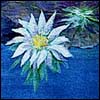The following is translated from the 16th-century Jewish classic, Shnei Luchot Ha-Brit (Two Tablets of the Covenant), by Rabbi Yeshayah Horowitz, one of the most influential books of ethics, custom, law and Jewish thought:1
Examine all of the cosmos and meditate upon them as much as is possible. Even that which may appear to you to be ugly, even that, G‑d made with wisdom.
That is why our rabbis, of blessed memory, established a blessing to be said upon seeing strange creatures, just as we do upon seeing seeing beautiful creatures—because the Master Craftsman who made them knows why He made them that way.
Think of the story of Rabbi Elazar, the son of Rabbi Shimon. He was riding on a donkey from Migdal Eder, and he felt rather smug, as he had learned much Torah. Coming across a certain rather ugly man, he exclaimed, “How ugly is this person!”
To which the man replied, “Go to the One that made me and tell him, ‘What an ugly craft You have made!’”
Immediately upon hearing this, Rabbi Elazar descended from his donkey and prostrated himself before the man, begging his forgiveness.
But the man insisted, “I will not forgive you until you go to my Craftsman.”
The people of the city came out to greet Rabbi Elazar and said, “Peace unto you, our teacher!”
The man asked them, “Whom are you calling your teacher?”
“This one who follows after you,” they answered.
He replied to them, “If this is a teacher, there should be no more like him in Israel!”
“What did he do to you?” they asked him. So he told them the story.
Yet they said, “Nevertheless, you must forgive him.”
“All right,” he said to Rabbi Elazar, “I forgive you. But as long as you do not become accustomed to such behavior.”
Not Only Humans
Indeed, one should never speak derogatorily, not only of those in human form, but of anything that G‑d created in His world.
In his work, “Duties of the Heart,” Rabbi Bachya ibn Paquda tells of a pious man who was walking on the way with other men. They passed by a carcass rotting by the side of the road, and one of the men exclaimed, “What a stench this carcass makes!”
Upon which the pious man commented, “It has fine white teeth.”
Obviously, the pious man did not mean to rebuke his fellow for wishing to avoid the stench of the carcass. Rather, what he meant by his words was, “Why are you speaking of its ugliness? Contemplate that there is something to praise about it!”
Our sages, of blessed memory, went to great lengths to emphasize the prohibition against mistreating food,2 which is nothing more than vegetation that grows from the earth. If so, it is certainly forbidden to deal with anything in the world if not for its honor.
So also writes Rabbi Moses Cordovero in his work of ethics, “The Palm Tree of Deborah”:
Do not scorn anything that exists, for all of them were made with wisdom. Do not uproot anything that grows, if not for a purpose. Do not bring death upon any living being, unless there is a need. And even then, choose for this creature a merciful death, with a finely honed knife, so that you show as much compassion as is possible.
This is the general rule: Compassion upon all that exists, so as not to cause harm—all this relies upon wisdom.








Join the Discussion